Thrive in a digital world
Download our Self Assessment Workbook today!
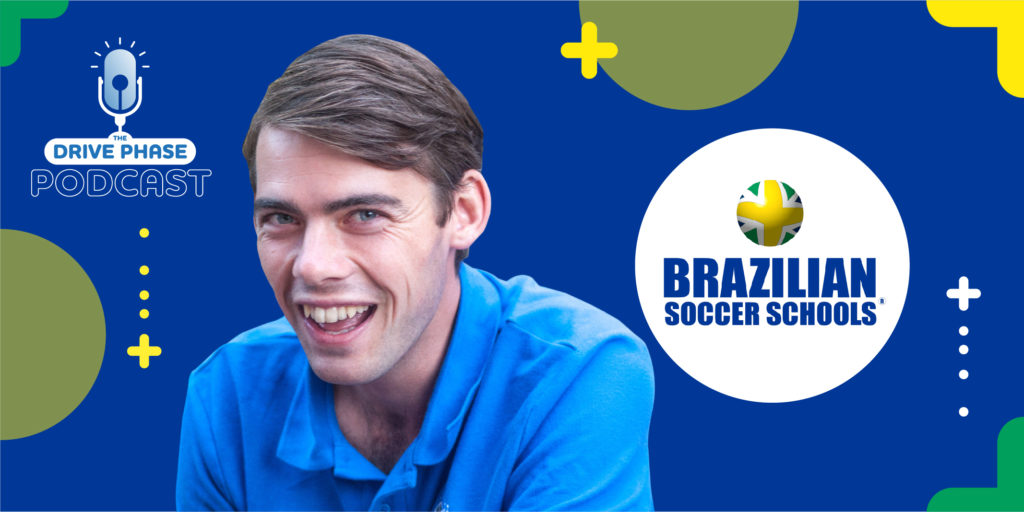
27:30
35:34
Fred Lowe 0:00
Exactly. So every child during sessions has their own football, and we have 200 different skills within the syllabus, which Simon built. And the way that they’re graded on that. It’s quite an individual sort of pursuit that they’re doing. They might do some drills in pairs with things like passing, but mainly, they’re working with the ball by themselves. And Simon had a great analogy, which was that if you’re a musician, you don’t join the orchestra straightaway. You master your instrument first, and then you can join the orchestra once you’ve been able to do that. And that’s very much our philosophy that if you master the technique with the ball, and then when you’re ready, you go and join a team.
James Moore 0:45
From Coordinate Sport, it’s the Drive Phase. A show about sports founders, leaders and experts, and the stories behind their business journeys. Our guest on this episode is Fred Lowe, Managing Director of Global football franchise brands, SOCATOTS, and Brazilian Soccer Schools. Fred had a unique introduction to football, being in the directors’ box from age five when his father Rupert was chairman at Southampton FC. He talks candidly about his experience and how it sparked his love for the game and eventually led to transitioning to lead the business from founder Simon Clifford. The programmes are based on the Brazilian version of futsal. Fred walks us through the programme philosophy and the story behind the launch of the business and its growth since he joined. We hear about his thoughts on the industry as a whole and what goes into growing and maintaining a brand across 15 countries. Enjoy the show.
Okay, so delighted to have another global success story with us today. The Brazilian Soccer Schools and SOCATOTS brands have scaled over the last 20 years, and now they’re working across 15 countries with proximately 20 franchises in the UK. So we’re looking forward to getting the inside story on the business with Fred Lowe, Managing Director. Welcome to the Drive Phase podcast, Fred.
Fred Lowe 2:13
Well, thank you very much for the intro, James. It’s good to be here and good to be able to tell the story.
James Moore 2:19
Yeah, great stuff. Thank you very much again. To start with, what we tend to do is try and get to know you a little bit better for the listeners, and the way we do that is if we could look back, are you able to tell us a bit about your earlier life?
Fred Lowe 2:31
I haven’t really moved too far, so I was born in the John Radcliffe Hospital in Oxford, and I’m still living around there now. And throughout my life, I’ve probably had one major passion, which has turned out to be football, probably for the reason that a lot of people’s foundations are set through their family, I suppose. And my father was heavily involved in football from when I was, I’m trying to think of the actual ages here, but I think I was around five years old when he first joined Southampton. He was the chairman of Southampton for about ten years. He wasn’t involved in football before that, so he had quite a different outlook to many of the people that played football or were involved in it. He was more of a business person, and then it was an opportunity that he ended up getting involved with. And yeah, from the ages of around five, up until fifteen I think it was, so right in my formative years, I was travelling to every game home and away. I obviously became a huge fan of Southampton during that time, got to visit many different cities and stadiums around the UK, which was quite interesting. Football grew to be a huge passion of mine from that, I think. I used to play a lot. I probably don’t support Southampton in the same way as I did then now, but I’m still obviously a fan, and it’s good to see us doing quite well at the moment on the Premier League table, which is nice to see going into Christmas.
James Moore 4:06
Yeah definitely. I’m an Arsenal fan, so we’ll leave that there.
Fred Lowe 4:09
Yeah. Well, I actually quite want Arsenal to do well because I think they’ve always played football the right way, and I think, was it Arson Vegas? Did you see Arson Vegas’ Desert Island Discs recently? That was quite a good lesson.
James Moore 4:24
No, I’ll have to check that one out. I must have missed that one. But yeah, you’re right. In terms of the way footballs played, we’ll touch on that when we look at the philosophy of the business. Hopefully, a bit of synergy there. One question we always ask is looking at school and the impact of PE and school sport on your life. So obviously, you mentioned there about football, and you had a different experience to many. But in terms of school, what were your first experiences with sport? How were they shaped in school in terms of participation?
Fred Lowe 4:51
I think, to be honest, I’ve never been that good at any particular sport apart from football, and that’s basically because I played from a very early age, probably through what my dad did. So I played from a very early age, maybe a lot earlier than a lot of my school friends would have done. And that meant that I got to a decent level, but I wouldn’t say I’m the most natural sportsman or athlete, as they say. I think I got to a decent level playing football, and probably most of the participation I’ve had within sport has been football. And that’s where I was going with my earlier discussion, was that was my main passion in life. And that’s why I made a decision early that I’d want to somehow work within football or sport in general, which is quite a difficult thing to achieve but very rewarding to be involved with. I’m sure you’ll agree, as someone who’s also involved in sport.
James Moore 5:48
Definitely, and in terms of university etc., you went on to study at Leeds, was it?
Fred Lowe 5:53
Yeah, exactly. So I studied politics, which is very different to football. Well, maybe not that different. And that was something that I did at school and then ended up doing relatively well at it, so my school basically said you should probably carry on with politics. So I applied to a politics course at university but looking back, I would have probably liked to have chosen something more sport-based. And I know you can now do it through UCFB. You can do a football-based qualification or sport-based qualification. There are actual courses now that focus on that.
James Moore 6:30
Are those the ones around sports leadership?
Fred Lowe 6:33
I wish that kind of thing had been around when I was a little bit younger. But you know, when you’re young, you don’t always have the same sort of surety in yourself that makes you make decisions as I would do now. I think you rely on others a bit more. So that does come into it a bit. But looking back, in hindsight, which is a beautiful thing, that’s what I would have done.
James Moore 6:56
Looking at the company, we want to get into the origin story, how things launched, and obviously, two really well-known brands. Are you able to talk us through the offer and the philosophy behind it?
Fred Lowe 7:15
We’ve got two very distinct brands. There’s SOCATOTS, which is for the under-fives, and Brazilian Soccer Schools, and they very much follow each other. So ideally, we want the children that join our classes to sort of start as early as possible, and that’s where I think SOCATOTS has its USP, if you will. We start a lot earlier than most other classes, except for swimming, as soon as they can walk really. We do have some non-walkers classes, but they’re not that popular. However, there are a couple of phase one classes, as we call them. So we have phase one, which is six months to one year, phase two is for age one to three, and phase three is three to five. Parents are actively involved throughout the SOCATOTS sessions, which again is quite different to our competitors, which is what allows us to start at that age because the parent is the one-on-one coach for their child, and our coaches are there to run the session, moving from activity to activity and that side of things. So they’re showing the parents what to do, and then the parents will do each of the activities with their child. So this allows us to start a lot earlier because it means that there are not lots of children. For one coach to look after the twelve children we have in each class would be very difficult, unless you’ve got the parent there at all times, which we do. And I think we’re teaching them many other things, not just football. So they’re learning throwing and catching, they’re learning about balance, coordination, colours, numbers, all of those types of things as well, and we bring in a bit of extracurricular stuff.
James Moore 8:55
At that age, those motor skills are so important. Do you see the progression as they’re going through your programme? I’m guessing you’ve got some parents and children who have been with you since they were six months, and then others might be joining at two or three or five. Can you see the difference in the children when they’ve gone through the whole programme?
Fred Lowe 9:14
That’s completely right. Brazilian Soccer Schools is the second part which starts at four or five, most people, probably around 60% to 80% of our customers at SOCATOTS will carry on through. And the coaches very much say that if they have someone that joins Brazilian Soccer Schools that hasn’t been to SOCATOTS, there is an extremely noticeable difference in their ability. And it’s not just ability, it’s even the listening aspect and the way our sessions are structured. The children that come into Brazilian Soccer Schools classes without having been to SOCATOTS, they’re not ready to learn straight away, and they have to take a bit of time to get used to how the sessions run, how to respect and listen to the coaches and carry out the activities. So I think from all standpoints, it does have a difference.
James Moore 10:12
So with the Brazilian Soccer Schools, the philosophy behind that, and that’s the Futebol de Salão, can you expand on that? That model is obviously brought over from South America, but for those listeners who have not heard of it before.
Fred Lowe 10:29
Brazil is obviously a hugely successful nation within the footballing framework. They’ve won five World Cups, so that’s pretty impressive and something we can only dream of here in England. So Simon Clifford is the actual founder of the Soccer Schools. I’ve noticed that you’ve done podcasts with other people, and I think most of the people you’ve done interviews with were founders of their business. And I suppose we’re a bit different in that we got involved a little bit later on and took over the business from Simon Clifford, and then have tried to take it to a new level from there, rather than actually founding it ourselves.
James Moore 11:14
So from my research, Simon has created the model, and I think you still use some of the curriculum today, right?
Fred Lowe 11:22
The curriculum has not changed one bit. He built an incredible syllabus. He basically travelled out to Brazil, which is where the story started. He was a fan of Middlesbrough, and he sat next to Juninho, a Brazilian player back then around 1995. And then, through that, he became friends with Juninho. Juninho was very surprised that we didn’t use these particular footballs they use in Brazil, which are heavily weighted and quite small. They’re size two, and they have 10% of the bounce of a normal football. So he was shocked that children in the UK weren’t using these footballs at all. So from that, Simon managed to get some good contacts through Juninho’s father and went out to Brazil to look at how they were using these footballs. Which essentially would have been on the street and in quite an unstructured manner. And he brought a few of the footballs back and built a sort of a syllabus around that, which encompasses how they would have been playing in groups on the street in Brazil. In small spaces, with lots of touches on the ball. Their technique hopefully was being built very quickly. They weren’t focusing so much on positions, tactics or anything like that. It’s very much just play with the ball, and love the game. And hopefully, by doing that, you’ll be able to increase your technique very quickly and then be able to bring that on later as a more tactical or positional player.
James Moore 13:01
So all about that first touch and manipulation of the ball and building their confidence? Just out of curiosity, in terms of your curriculum, do you have an award scheme built in there as they’re learning different skills. What do you offer progression wise, and how does that work?
Fred Lowe 13:16
Well, exactly. So every child during sessions has their own football, and we have 200 different skills within the syllabus, which Simon built. And the way that they’re graded on that. It’s quite an individual sort of pursuit that they’re doing. They might do some drills in pairs with things like passing, but mainly, they’re working with the ball by themselves. And Simon had a great analogy, which was that if you’re a musician, you don’t join the orchestra straightaway. You master your instrument first, and then you can join the orchestra once you’ve been able to do that. And that’s very much our philosophy that if you master the technique with the ball, and then when you’re ready, you go and join a team. But it’s very difficult to grade people without playing matches or having some sort of competitive framework. So to get around that, he developed something called the skills badge scheme, which is very similar to the belt scheme in karate, in that each we have six different levels. For example, if you could do ten juggles on one foot or either foot, you might get to level one. But if you could do 300, then you might be at level five, so it works in that way. There are programmes broken down into all these different areas, and they’ve got to complete all the different skills to move up the levels, and they get a box set and some coins once they’ve achieved each level which hopefully keeps them engaged.
James Moore 14:55
I was going to say yeah, in terms of retention of participants, which is huge for all clubs but also as a business and a franchise model which we’ll get onto, that award scheme and those levels means you’re going to have parents and children coming back, right? Because they want to keep progressing and keep moving on to the next level.
Fred Lowe 15:13
Exactly, and also during the lockdown, for example, it’s very much something that as long as you’ve got a football and understand the syllabus, you can do it in your back garden. Even if you’ve only got a very small back garden, these are all things you can do in quite a small area. So it was very much something that we were looking for them to do during that time as well.
James Moore 15:34
And so, in terms of the business model overall, it is a franchise business, obviously as mentioned earlier. Was it 20 franchises in the UK?
Fred Lowe 15:44
That’s about right. Some of our franchisees have more than one franchise area, but there are about 20 licences that we’ve got in the UK, and then we’re within 10 or 15 countries, but that’s not always over the whole country. Usually, they’d start in a small area. For example, in Canada, we’re just in British Columbia, and then hopefully, we can build from there. But we’re within that 10 to 15 countries as well as our footprint in the UK.
James Moore 16:14
So yeah, you touched on Simon and how we created the syllabus, etc. I don’t know if he’s still involved in the business, but I saw he’s moved on to Hollywood, choreographing some of the football films out there.
Fred Lowe 16:29
Yeah, so he’s worked with Kiera Knightly in Bend It Like Beckham. I think that was one of the earlier football films he got involved with, and I think he recently did The English Game, I think it was called, on Netflix. He’s not involved in the business anymore, but I was actually working alongside him for a short while, while he was still involved in the business. And he was very much a source of inspiration for me in that he created and built this programme from nothing and built it up to have a very good footprint around the world, and it’s not easy to do that. Especially with businesses like this, the sector we’re involved in, it’s not easy to build something from the ground up. And he was born on a council estate in Middlesbrough, so he very much came from nothing and built this amazing thing, and hopefully, we can continue to make him proud with what we can achieve. He had a big effect on my early career as well, and I learned a lot from him while I was working with him.
James Moore 17:45
Yeah, I was going to say I remember some of the marketing from back when I was younger, and I noticed recently, it was the anniversary of Socrates coming over and playing in Leeds. And the brand has always been strong with Brazilian Soccer Schools. The uniforms that the kids are wearing. It’s inspirational. When you see the green and yellow and the blue shorts, everyone gravitates towards it, so hopefully, that’s been a source of success. I just wanted to touch on how you actually got started in the business. Was it a Leeds connection when you were at university? Was that when you joined the business?
Fred Lowe 18:22
I was at Leeds University and to be honest I wasn’t particularly enjoying the course I was doing. But my dad had always been very pro, you need to decide what you want to do, and then you need to try and get involved with different things to learn, even while you’re very young.
James Moore 18:40
By that, do you mean getting into the industry or internships etc.?
Fred Lowe 18:44
Yeah, so I knew I wanted to be involved in football, and I was thinking about a couple of different things, like being an agent and various other things that you can do.
James Moore 18:54
So that politics degree solidified that decision then?
Fred Lowe 18:57
Yeah, exactly. I didn’t really enjoy it so much, but it’s a means to an end. You’ve got to get the degree and prove that you can stick it out, and then hopefully go on and do what you want to do. But yes, Simon gave me the opportunity to come in once a week to learn from him, which was very valuable at that time in my life. He’s very different from my own dad, and in some ways, I think that was very valuable to have another father figure and someone that I can learn from, and I think it was very valuable to have those two different people to look up to.
James Moore 19:37
So at that time, were you volunteering on coaching sessions or working as a coach, or was it more like an internship?
Fred Lowe 19:45
To be honest, I was just hanging around at the office, and one day I might be tailing Simon doing something, and another day I’d be just watching another coach. It was sort of informal. I just used to turn up and help do whatever people wanted help with at that time, but the position that I’m in now is very much a circumstance of that in the way things unravelled.
James Moore 20:13
Yeah, I was going to touch on that in terms of the transitions. Obviously, it’s a different setup now. I know you’ve got your global franchise, and is that based out of Poland at the moment?
Fred Lowe 20:23
Yeah, so we and the franchisees that own the Polish franchise work together on doing the international franchising, because obviously, they’ve got a big franchise in Poland with around 5000 – 6000 children. And we’ve got a big franchise here in the UK, so we’ve worked together on sort of the international side of things.
James Moore 20:43
So you come in together to break into new territories?
Fred Lowe 20:46
Exactly, and a lot of the training well, pre-COVID, the training is very much done on-site. So when, for example, if we have people who become interested in the franchise, we can either host them in Poland or the UK or train them in Poland or the UK, which is quite useful.
James Moore 21:04
Were you able to expand on that transition? So was it around 2011 – 2012 when you took over the business?
Fred Lowe 21:11
Yeah, I think was in 2010– 2011, and the business got into a few difficulties. Obviously, there was the financial crisis and various other things, and then we ended up taking it over at that time. The syllabus has very much not changed, and that’s a testament to the way it was constructed by Simon. Because it still delivers the same value to them, which is hopefully developing footballers ultimately, but obviously, not everyone will become a footballer. And that hasn’t changed. I think what we’ve tried to put in place is just a more robust structure of things behind the scenes. For example, software, IT platforms, and how franchisees access the training content, everything like that. Which has become clear this year we’ve now got to train people online, so it’s becoming even more like a lot of other things. I think it’s accelerated what we were trying to do anyway. I think we’ve had to accelerate to go even further than maybe we were going before and with that particular issue of training.
James Moore 22:31
I’m interested in that, so 2010 – 2011, would you be just finishing University at that point? I’m just thinking it’s a big step at that point to step up and then have everything on your shoulders. Is that how it worked? Did you move into the MD role straight away?
Fred Lowe 22:47
Well, I think it was just that we didn’t pump in lots of money straight away. It was very much like let’s try and live within our means. And so, I was the only full-time employee at that time, just trying to piece things back together. But the great thing was, there were amazing people that I met that were franchisees at that time. And within the UK, the head coach of the Brazillian Soccer Schools programme is actually a franchisee based in Jersey called Will Partington. And then the head coach of the SOCATOTS programme is a different franchisee, who has Milton Keynes area. He’s called Paul Darton. And they’ve formed the rest of the team. We also now have Katie, who helps us with the support side of things and IT. But back then, I formed great relationships with Will and Paul, and they’ve very much helped us put things into a form where hopefully, we now deliver a great platform for people to build their own businesses.
James Moore 23:53
So personally, for you, that was that like a bit of a baptism of fire? It’s almost like a startup mentality of you coming in and having to wear all the different hats at the time.
Fred Lowe 24:05
Well, I had those people around me, luckily. And I’d count them as friends as well as people I work with, and they’d obviously been running their own franchise for many years, so they had the sort of experience that I maybe didn’t have them.
James Moore 24:27
Definitely, and I guess that’s the power of the network and the power of franchising. You’ve got that safety net or support network around you at all times.
Fred Lowe 24:38
Yeah, that’s something we try and really encourage them to do amongst themselves.
James Moore 24:44
Definitely. I guess from then to now, what’s the growth been like? You’re at 20 franchisees now in the UK. Was there more at that time, or did you have to build back up again?
Fred Lowe 24:54
Yeah, we’ve had to build back up. We probably haven’t grown as fast as we would have liked to be completely honest with you, internationally and within the UK. But I think all of the franchises we have are performing very well, and we haven’t particularly lost any franchisees during that time. So I think that can be a source of pride and happiness really, that we do have a very stable group of franchisees returning over good amounts.
James Moore 25:30
Yeah, I might be wrong, this is just anecdotal from my point of view, but I see your business maybe being a bit ahead of its time. There’s a lot of competition out there now, but back when it launched, I don’t think there was anything else like it.
Fred Lowe 25:46
I think you’re absolutely right. Especially with now, you see we’re part of this trade body called the Children’s Activities Association, which is a group of businesses like our own, and it’s got to be at least 100 members. And I think we’re all driving it. I don’t know how many children it would have if you counted each different company and how many children they had under their banner, but it would show that the industry is actually extremely large. And parents must be spending a lot of money on all these different activities, but as you say, I think it is very much a competitive industry in terms of franchising.
James Moore 26:25
Yeah. I mean obviously, football in the UK is the most popular sport, it’s going to attract competition. I guess this is a difficult question at the moment but in normal times, if you could go back and imagine that pre-COVID time, what would you say are the recurring day to day challenges that you have when running the business?
Fred Lowe 26:45
Well, it’s probably very different for each person you have on the podcast, but I’d say just managing a franchise network is quite challenging. Especially because each franchisee is slightly different, and I think you can very much draw the analogy to a team. And some characters in the team need you to put your arm around them, and some you need to give slightly different treatment. But it’s a difficult balance to strike, because I think depending on the times and what’s going on, the treatment can be different for each different person. So I think for me, the biggest challenge is holding together a franchise network and constantly driving them to increase the numbers of children they’re coaching and into delivering better sessions. And you’ve always got to drive them to do more, and you’ve got to be that person that wakes up every day and has the mentality to keep doing that.
James Moore 27:54
So the football man-management that gets banded about, it’s the same within the business. We always ask about what’s been your biggest setback in business? I’m assuming it’s COVID this year. I don’t know if I’m jumping to conclusions or not. But if it isn’t, or you could tell me what it was, how did you deal with that? What would it look like for you guys, when everything kind of kicked in?
Fred Lowe 28:15
I’d say definitely has been this last year, but you’ve already touched on it. It’s great to be able to have a network of people to navigate things with, and the rules have been very difficult for us to dig down into just because we don’t sit there as a company that the government are going to say, this is what you should do. So you’d have to obviously draw different pieces of information that they give out and try and fit that into what we do, and then decide whether we feel comfortable to run or not and all these different things. But I think having the network of people, even the franchise network, to speak to and even people in other countries we work with has been very good. And I think it would be a lot harder to be doing it on our own. That would be one thing.
James Moore 29:09
I think you’re right on that, in terms of the messaging coming out from the government, especially around the sector. I know you’re not the only one. A lot of people are saying the same thing. It’s just really vague or open to interpretation. I guess when all your franchisees are trying to interpret it differently, and you want to get a steer on it and give some guidance has got to be difficult. And also, you can see what the other 15 countries you’re working in are doing, so you think well, maybe we should do it like Poland etc.
Fred Lowe 29:36
That’s been quite interesting because South Korea, for example, had an early outbreak before us, and speaking to them gave us quite a lot of positivity because they’d got through it. They were wiping down all of their venues, spraying them with disinfectants, and managed to get back up and running. So that gave me a lot of positivity to be able to see what they were doing. Subsequently, it’s turned out they had to shut down again, and so do we, but at the time it was obviously very useful.
James Moore 30:07
So you’re almost forecasting four weeks out where we’re going to be in the UK.
Fred Lowe 30:12
And obviously, every country has reacted slightly differently, but overall you can see how it’s gone.
James Moore 30:21
Out of curiosity, and I don’t want to get political, but out of your network, which country would you say handled it the best or the ones who had the best results in terms of being able to get back up and running?
Fred Lowe 30:32
Well, without wanting to sort of sit on the fence and sound a bit like a politician, I think Australia seemed to have dealt with it pretty well. But I don’t know whether that’s just because they’ve locked down their borders, and they’ve managed to stop it coming in. But at some point, will they have an outbreak? I don’t know. But sitting here now, I would say they look to have dealt with it relatively well.
James Moore 30:59
I guess you’d call them a destination rather than a hub, not as many people coming and going. So I guess, not to be too hard on the UK, but people are travelling through, and we get a lot of people coming and going, which probably had an impact.
Fred Lowe 31:08
No, that’s probably right. And each city in Australia is quite far apart, so it’s easier to shut them down.
James Moore 31:18
Just on those measures you’ve taken, I was watching some of the videos on your Facebook page, and head coach Paul was walking through what you’ve had to put in place. Just curious in terms of how quickly you were able to put those in place, and what those measures have been. Because I know the children always get their own kit anyway with you, so it might be easier for you to transition is that right, so they’ve all got their own ball.
Fred Lowe 31:43
I think the main differences were that we used to hand out the equipment, and the children used to pack it away because that’s something that you want to get them into a good routine of putting away their own equipment at home, and all those types of things. But we had to slightly change things like that. They now have their own set of equipment, and they get put in their own area, but I think it wasn’t too difficult for us to transition to that. And actually, a lot of the feedback we’ve had is some of the parents would like to stay, so it’s interesting. But I think the main point is that, actually, most of our customers were happy to come back, and participate in an activity again. And I think across all different industries, we’ve seen a good job of everyone becoming COVID secure. And I think it’s probably cost a lot of companies quite a lot of money to put on all these extra safety measures. I think most companies have had to take that on the chin, but we were lucky that most of our customers came back, and the ones that didn’t were replaced by a new influx of people that we got just after the first lockdown.
James Moore 33:09
Yeah, and we’ve mentioned it on the podcast before, but that pent up demand we’re assuming is there, and they’re going to come flooding back. I guess that leads me on to the next question around growth plans. So obviously, plans would have been impacted by this year, but have you got a goal for the business for the next five to ten years? Or are there any countries you’re trying to branch out to?
Fred Lowe 33:36
I think within the UK, we’ve mapped it all out. And in our projections, we saw that there is space for at least 80 or so franchises. So that was the ultimate target. This year, people are still interested in the franchise, but obviously, no one’s going to pull the trigger on it, nor do we want them to, because we’d potentially be selling something that we couldn’t deliver on. But we don’t really know how everything stands and when things will go back to something resembling normal.
James Moore 34:13
You can’t forecast first-year revenue for them at the moment, can you?
Fred Lowe 34:17
I think the general thing is that we’re continuing to speak to the people interested and keep them informed about how it all operates. And hopefully, there’ll be a bit of a pent up demand in the number of franchisees that we can bring on. So I think as soon as things come back to a position where we’re delivering regular sessions and we’re not fretting about when the next lockdown will be, then I’m confident that we might be able to make some meaningful new franchise sales. And in my job, I think it gives me the most pleasure to be able to sell a new franchise, watch a new area, take on franchisees, watch someone be trained in how to deliver the classes, and then obviously watch the children enjoy the classes. And you slowly see them grow up to having a good number of children and being able to make a career out of it. I think that’s basically what I want to see, so I’m really hoping that we can get there.
James Moore 35:17
Definitely. In terms of countries or territories that you’re not in at the moment that you’d like to be in, is there any that you’ve earmarked? I know that might be difficult at the moment.
Fred Lowe 35:26
Well, I think internationally, it’s a bit of a different tactic. In the UK, it’s easier to target an area, but I think when it comes to selling an international franchise, I don’t think it’s quite as much of a science in terms of how you get there. It’s more that you just have to keep doing all the right things in each of the countries that you’re in, in terms of marketing, delivering good classes, and getting good content out there. And hopefully, someone will come across what you do. We found it’s difficult to target actual countries. It’s more that you get rewards from just doing the right things within your territory.
James Moore 36:09
I guess you need the ideal master franchise for that territory, right? The person who’s got the network and can grow it for you in that specific location.
Fred Lowe 36:19
Exactly, and they usually find you rather than you finding them, in my experience anyway. That could be online through something that other franchisees have been doing in another country, or maybe they’re even a customer. We’ve had interest from customers in the UK of people that then move back to another country elsewhere, and it would be something that they’d look into. That’s the way it tends to work with the international side of things. But, within the UK, it’s more about targeting particular areas, and you get the interest that way.
James Moore 36:56
A more personal question, in terms of your time in business, have you developed any philosophies or ways that you go about running the business that you may be able to share with our listeners?
Fred Lowe 37:08
I don’t have a particular theory, but the one that I think makes the most sense to me is, I think it’s Japanese, and it’s the Kaizen theory. I don’t know it that well, but it’s the idea that you’ve just got to work hard every day, make sure you’re doing the right things that will push the business forward. And once you work that out, I think you’ve just got to work very hard, make sure you surround yourself with good people, and as long as you have the passion and the belief in what you’re doing, I think you’re going to get to where you you’re going to get to in the end.
James Moore 37:50
It’s all those little improvements that add up over time.
Fred Lowe 37:54
To bring it all back, I suppose my father and Simon Clifford worked with Clive Woodward for a short time when they were all at Southampton. And that was very much Clive Woodward’s philosophy that if you keep working at as many of those 1% marginal gains as you can, you can become quite an irresistible force, and I suppose I very much agree with that.
James Moore 38:19
For you personally, I’m fascinated to know, is there anything that you put in place just in your daily routine that keeps you sane, reduces stress, keeps you focused? Is there anything you do on a daily basis that helps with that?
Fred Lowe 38:40
I’ve got a sort of another mentor who used to run the business for a couple of years before I did. He’s called Mark Rash, and I worked with him. He has helped me to set my goals and make sure that I’m keeping to them, which is a good function to have. He’s also taught me that all the goals that you do have, you need to keep them somewhere that you look at quite often. So whether it’s on your fridge or next to your computer, I make sure that I’ve got whatever I’m aiming for within the next I suppose one year and beyond, I have there. And that would be something that I do to keep my mind on where we need to get to, but I think away from work I’m very much someone who likes to play sport. Whether it be football or now, I’m getting a bit old for football, and I’ve moved on to tennis and squash and things like that, but I think that’s a great reliever of stress.
James Moore 39:42
I thought you were going to say golf then.
Fred Lowe 39:44
Sometimes, I think that’s a great way of doing that as well.
James Moore 39:48
Yeah, you’ve got to stay active, reduce the stress. Last question from me, and we always ask this one. It’s a bit of a reflection, really. So if you could go back to your time when you started in the business, let’s say 2010, you could go back in time and give yourself a little message, what would it be, what advice would you give yourself?
Fred Lowe 40:07
I’d have to say that judging by everything that’s gone on this year. I just think the message would be in that I’d probably try and stress the importance of not trying to build all of the IT and tech side of things, as well as the support side. And maybe I could have done that a bit quicker. The fact that we now need everything to be online and with all of the remote working and everything like that, I suppose it would have been slightly pandemic related, maybe.
James Moore 40:41
Definitely. So, again, thank you so much for your time today. And we’ll leave everything in the kind of in the show notes. So to anyone out there who’s interested in a franchise or a coach wants to get in touch, they’ll be able to get hold of you. So yeah, thanks again for your time today.
Fred Lowe 40:56
Thanks for having me, James.
James Moore 41:01
Thank you for listening to this week’s show. You can subscribe anywhere you get your podcasts. If you’d like to get in touch with us, you can write to us at drivephase.podcast@coordinatecloud, tweet us @coordinatesport or follow us on Instagram @coordinate_sport or my account @james_ventures. This episode was produced by Nancy Kwamboka, with support from Claire Goodchild and Lola Small. And a special thanks to Rochelle. I am James Moore, and you’ve been listening to the Drive Phase from Coordinate Sport.
Having problems? Contact us, we’re here to help.
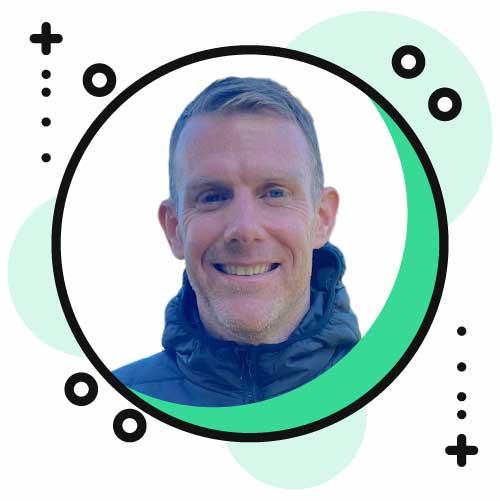
Gary discusses Coach Core’s ambitious vision for growth and invites listeners to explore how they can help shape the future with him.
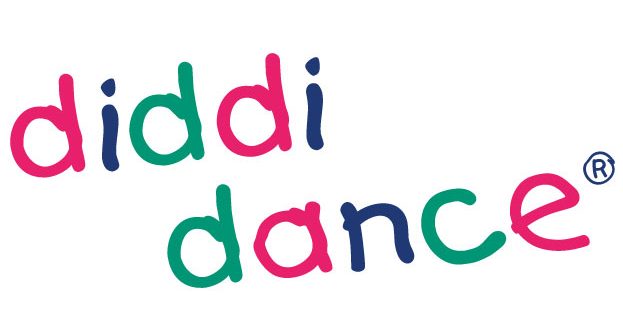

James is joined by Anne-Marie Martin, the founder of diddi dance, a preschool dance franchise that’s captured the imaginations of babies and toddlers across the UK.
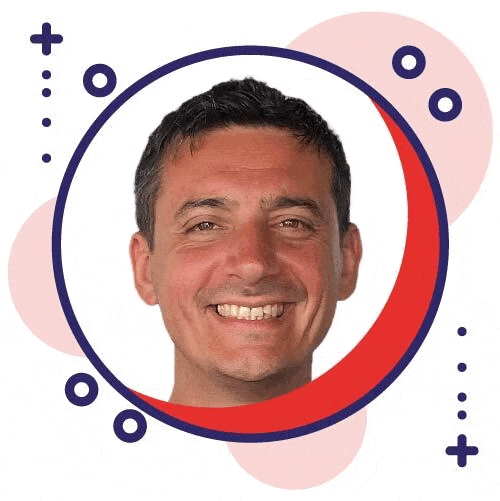
In today's episode, James features an amazing trio with bursting expertise in Wraparound childcare within the sports corporate sphere.

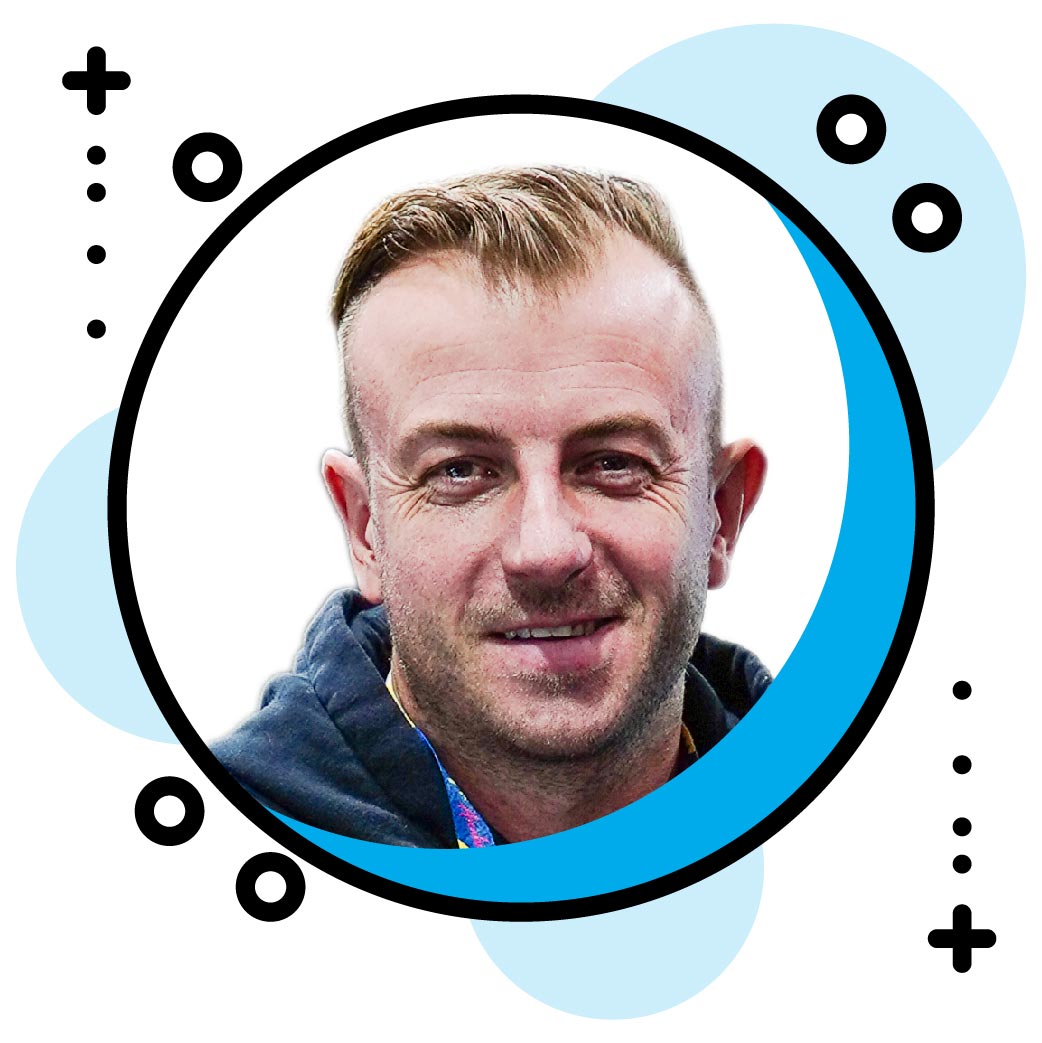
In today's episode, James speaks to Graeme Eaglesham, the co-founder and CEO at Future Kids.
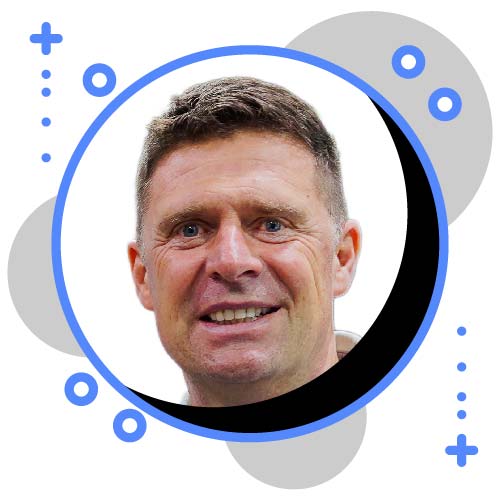
Niall Quinn is the founder and president of Team Taca, a private podcast that collaborates with soccer clubs to produce private and localised club podcasts.
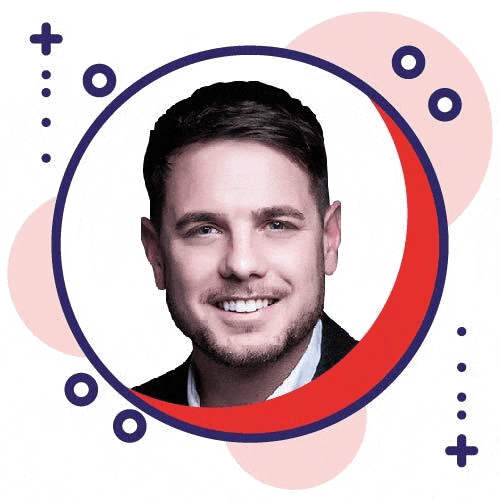
Listen in as the quad panel unravels valuable insights delving deep from their experience and positions in business growth.
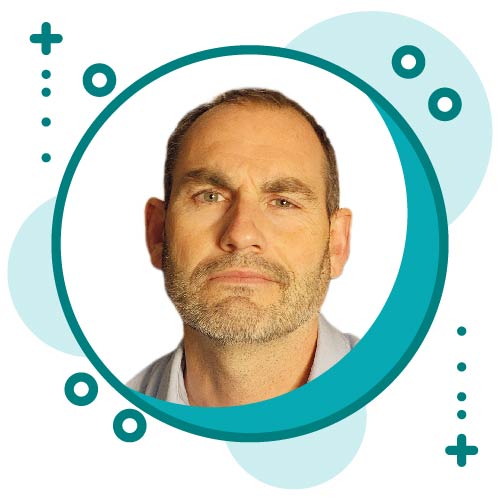
James engages with Andrew Busby, the CEO of Kings Active Foundation, an organisation that has been driving sustained change in sports and activity for children.


Turtle Tots is a renowned and award-winning franchise specialising in children's swimming education.

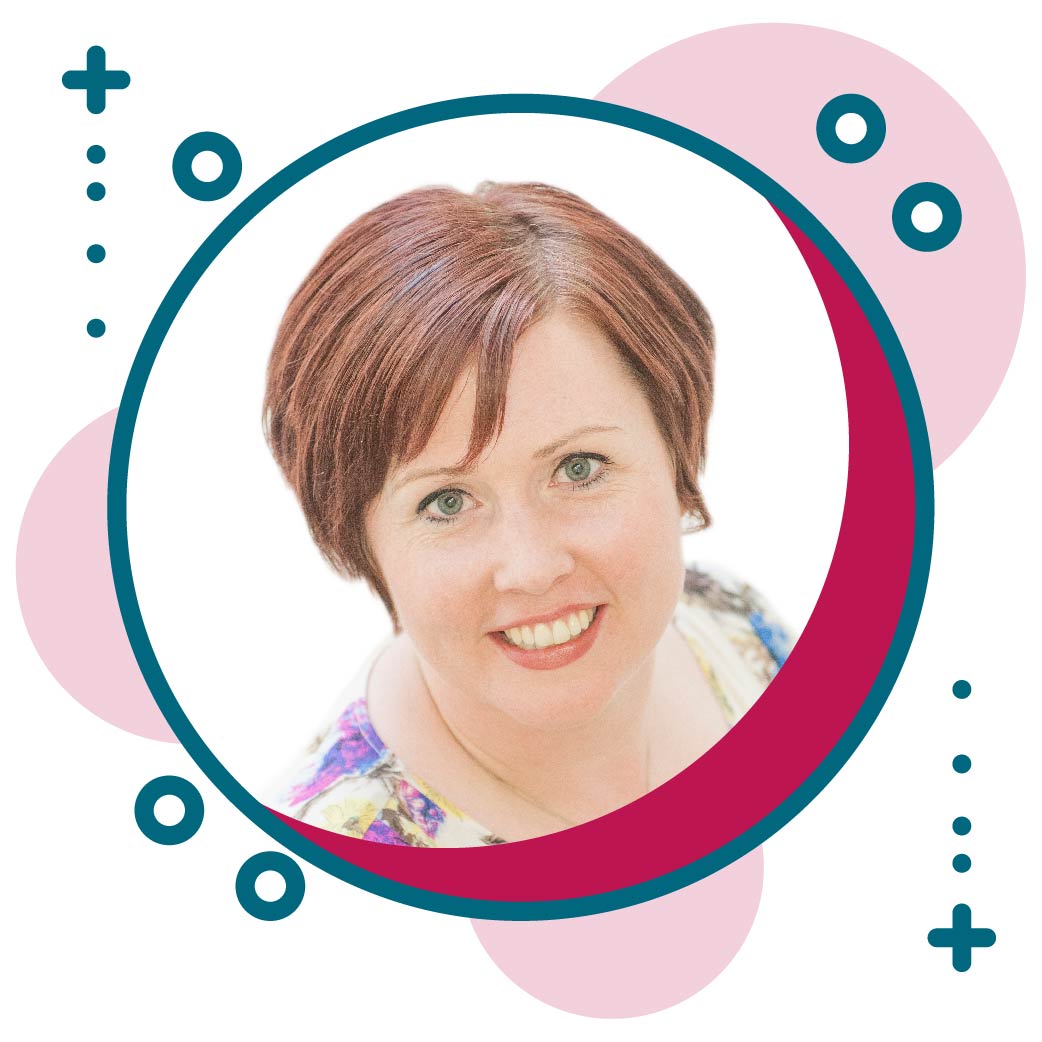
James interviews Anna Kenrick, a remarkable individual who wears many hats - teacher, choreographer, and Artistic Director at YDANCE.

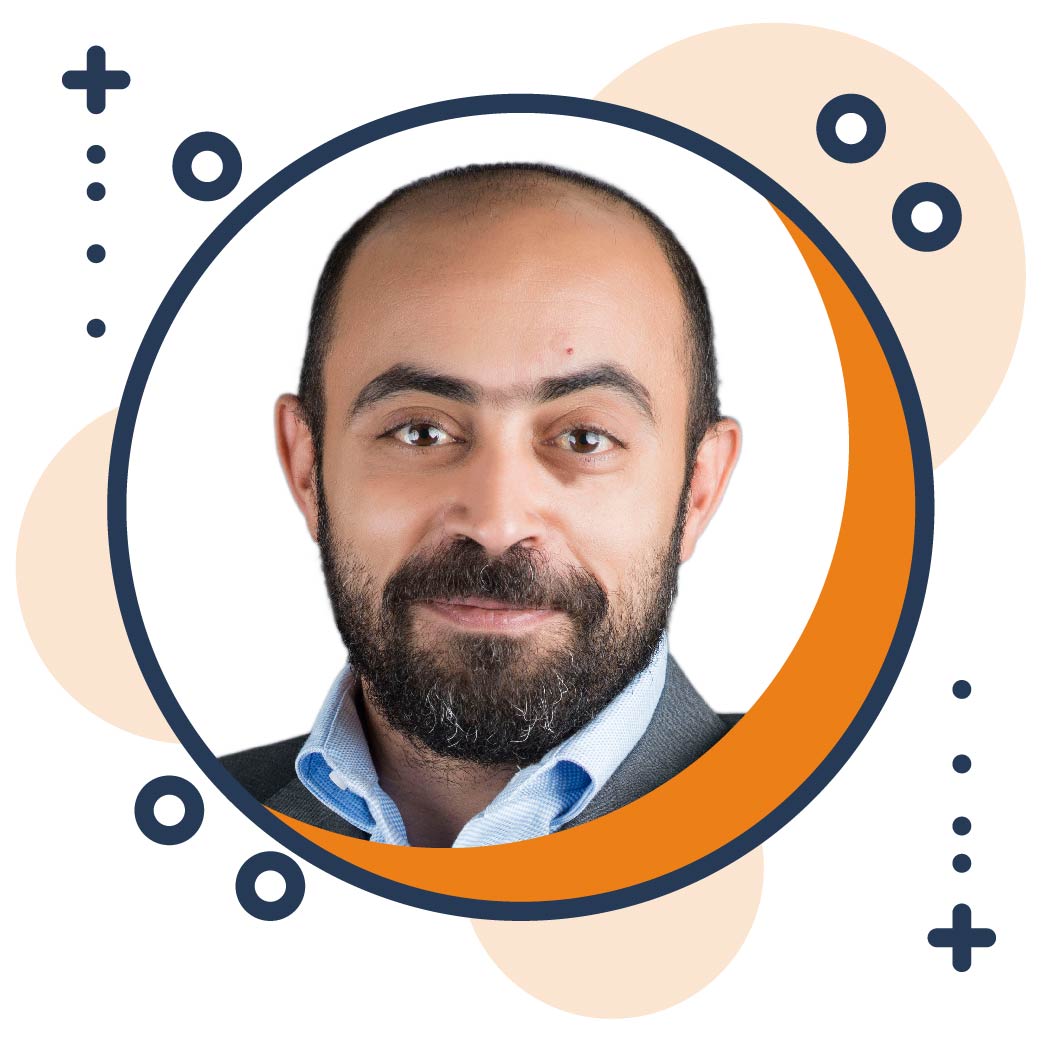
In today's episode, James interviews Seif Tawfik, a former first-division footballer in the Egyptian League and the Founder & CEO of Stryx Sports.